In his quiet two-storey house in Gloucester, England, Kevin Zhang, 49, lives surrounded by hundreds of parcels strewn across his living room. Each one, sent from China, is on its way to a British customer who ordered it through Temu, TikTok Shop or AliExpress.
Having moved to the UK from China’s industrial northeast in 2000 and running a nail salon for years, Mr Zhang saw a seismic shift taking place in the world of cross-border e-commerce. He decided to take action.
In March this year, he turned a spare space in his home into a “self-sufficient warehouse” that processes orders for Chinese exporters. At a fee of £1 ($1.35) per order, the side hustle quickly brought in nearly £2,000 a month. “The volume of orders increased so much that I had to turn away some customers,” he said.
Kevin Zhang’s story is not an isolated one. It is a microcosm of the dramatic macrocosm of Shein and Temu, two forces that have transformed global retail. After years of incredible growth, they are now embroiled in a battle where tariffs, regulatory hurdles and market complexity are reshaping the fate of an entire empire.
The "de minimis" earthquake and the end of the golden age
Over the past five years, Shein and Temu have created a modern-day fairy tale. Their business model is built on a seemingly unshakable pillar: the US “de minimis” clause.
This rule allows packages under $800 to be exempt from import duties. By shipping small orders directly from Chinese factories to American consumers, they avoid huge taxes, creating a price advantage that no competitor can compete with.
Combined with billion-dollar social media advertising campaigns, they have attracted a huge customer base in just a few months. Their rise has been so rapid that traditional Western retailers have been caught off guard.
But all good things must come to an end. On May 2, President Donald Trump struck a blow to this business model, announcing the complete elimination of “de minimis” benefits for goods from China, calling it “a big scam on the United States.” Shipments that were once exempt from duties now face tariffs that could reach 30% or more.
The impact was almost immediate. According to data from analytics firm Sensor Tower, monthly active users on Temu in the US dropped 51% from March to June, to 40.2 million. Shein also saw a 12% drop, to 41.4 million.
At the same time, both companies simultaneously tightened their advertising screws. Temu’s US digital ad spend fell 87%, while Shein’s fell 69% year-over-year. They fell from being among the top 11 US advertisers to falling out of the top 60. The golden era of easy growth at all costs in the US has abruptly ended.

The US de minimis cut policy, combined with additional import tariffs of up to 145%, plus a maximum processing fee of $50 per package, caused product prices on Temu and Shein in the US to more than double, causing profits to plummet (Illustration: Renee Zhang).
The "American Dream" becomes a survival problem
For hundreds of thousands of Chinese sellers like Huang Lun, whose Guangzhou-based company sells underwear and yoga pants, the U.S. market used to be a gold mine, accounting for 70 percent of total sales. With Trump threatening tariffs, Huang’s urgent task is to find new markets in Europe and Australia.
The tariff shock has forced sellers to act. In the first two weeks of May alone, the average price of nearly 100 products on Shein rose more than 20 percent, according to Bloomberg News. Sales have fallen as a result. Shein’s sales in the 28 days ending May 22 fell 16 percent from a year earlier, while Temu’s fell about 19 percent, according to Bloomberg Second Measure.
To cope, Temu has made a painful strategic pivot: abandoning its direct-shipping model from China and shifting to operating as a domestic e-commerce platform. Temu now “looks a lot like Amazon,” says Juozas Kaziukėnas, with goods delivered from warehouses in the United States in just a few days.
But this hasty transformation has turned the American dream into a mess for both buyers and sellers. American consumers suddenly found a series of products in their shopping carts and wish lists disappearing overnight, replaced by the words "sold out."
On Reddit, one small business owner lamented: "I used to rely on Temu for my supplies, now I'm panicking because I can't find any of my regular items." Meanwhile, Temu's customer service could only vaguely reply that the platform was "unable to display items outside the US."
The chaos also spread to Chinese sellers, who were apparently given no advance notice of the change. To make matters worse, Temu reportedly removed a number of sellers from the platform and then hastily reinstated them, leaving many confused and thinking they were being kicked out of the game.
Still, even in the face of a tumultuous restructuring, abandoning the U.S. market remains unthinkable. As soon as the Trump administration suspended some tariffs for 90 days, Huang’s company was ordered to refocus on the U.S. market. They quickly placed new orders and rented containers to ship more goods.
“We still have to watch other markets, but it is less urgent now,” Mr. Huang said.
Wang Xin, director of the Shenzhen Cross-Border E-Commerce Association, elaborated on this sentiment: "Enterprises have spent years building their positions in the US, establishing supply chains, and understanding consumer needs. These are sunk costs that cannot be ignored. Maintaining operations in the US, ensuring cash flow, and surviving are the most important and urgent things right now."
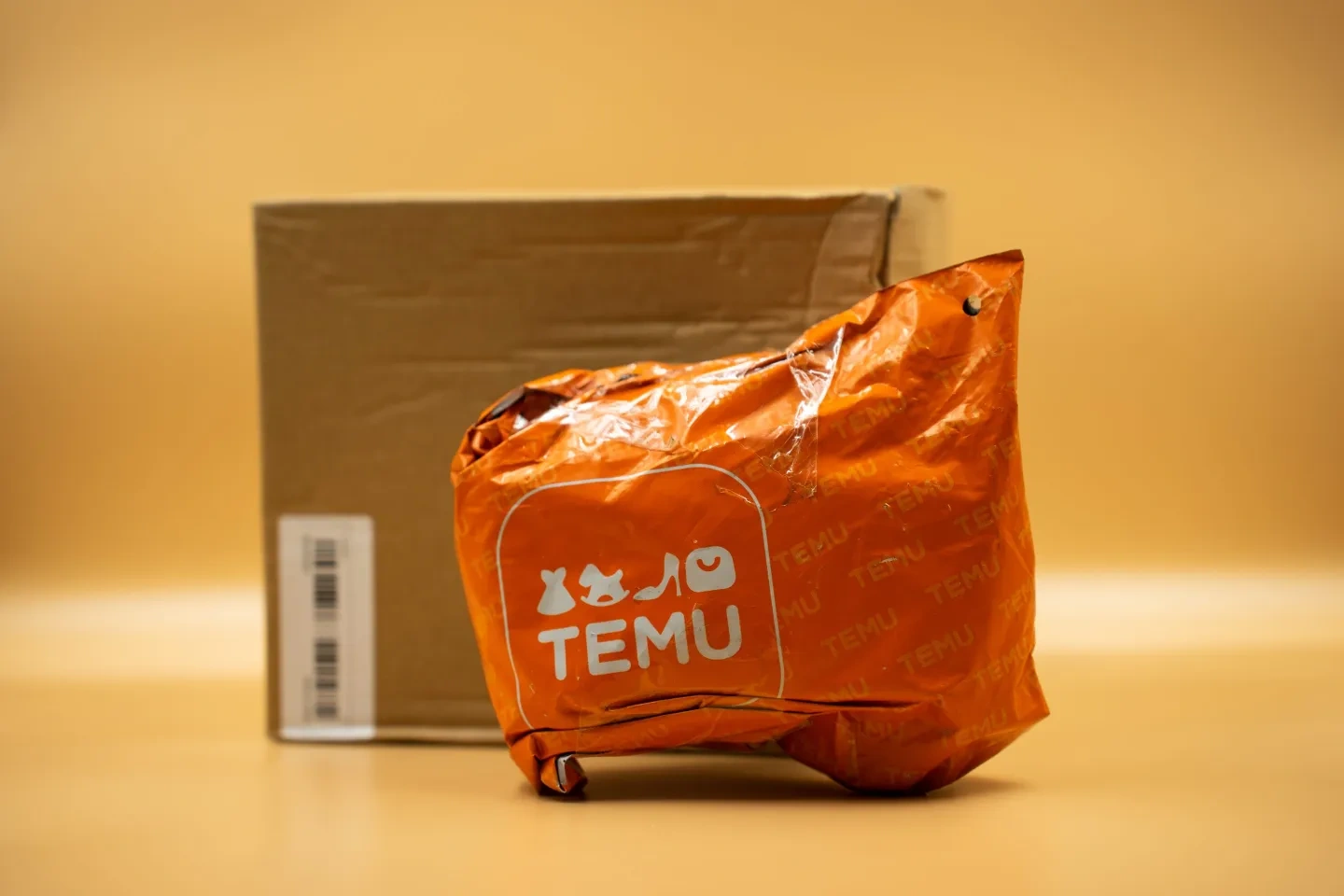
Instead of continuing to offer cheap Chinese goods, Temu has now switched to selling products shipped from warehouses in the US (Photo: Getty).
The European Gamble: Promised Land or Legal Quagmire?
As the US market has become more difficult, Europe has emerged as a strategic direction. Temu and Shein have re-applied the formula that worked in the US: pouring money into advertising and heavy subsidies.
Sensor Tower data shows that Temu’s monthly active users increased by 76% in France, 71% in Spain, and 64% in Germany. Data from AppGrowing Global also shows that Temu’s monthly ad spend in Europe increased 12 times year-on-year in April and May. Both platforms spent more on advertising in the UK than in the US in the past two months.
They also directly subsidize shipping and orders. Temu offers a subsidy of €2.99 (about $3.50) for orders under €30, while TikTok in the UK is willing to subsidize £3.48 (about $4.77) per transaction.
But interviews with Chinese vendors suggest that the subsidies are not enough to make them invest seriously. Roy Chen, founder of fire alarm company Sensereo, calls the sales experience in Europe “a hellish regime.”
“Now I understand why everyone wants to start a business in the US market,” Chen said. To sell in Europe, he had to register for VAT in each country, offer different types of plugs, translate manuals into at least five languages, and constantly update products to meet changing standards. “In such a fragmented market, there is nowhere to make as much profit as in the huge, unified US market.”
The hurdles Roy Chen faces are no accident. The EU and the UK have much stricter regulations than the US on product standards and consumer protection. And regulators are increasingly aggressive.
The European Commission is investigating Temu for possible violations of the Digital Services Act (DSA), including illegal product sales and misleading interface design. Shein has also previously been accused of using tricks such as artificial discounts.
The biggest concern is product safety. When the Darmstadt Regional Council, Germany, tested 800 products from Asian e-commerce platforms, it found that 95% did not meet European standards. Among them, laser pens exceeded the legal power limit by 300 times and toys contained toxic chemicals 100 times the permitted limit. “We cannot keep up with the huge volume of goods coming in,” admits council official Angelika Küster.
Furthermore, the EU is also considering scrapping its own €150 duty-free threshold and plans to impose a handling fee on each small package. The window of opportunity in Europe, while wide open, could soon close.

The new wave of policies in the US forced Chinese platforms to look elsewhere, and Europe quickly became an “attractive destination” because it still enjoys duty-free status for low-value goods under 150 euros, also known as the EU de minimis loophole (Illustration: DW).
The current crisis has exposed the dependence of Shein and Temu’s business model on a single regulatory loophole in their largest market. Now that that loophole has been closed, they are entering a new phase: one of adapting and innovating in the face of adversity.
The story of Shein’s IPO, once expected to be one of the biggest deals of the year, has also become murky. After struggling to get approval in the US and UK, Shein is reportedly preparing to file in Hong Kong, China — a safer but less ambitious move.
From macro strategies like shifting supply chains and changing pricing strategies, to innovative micro solutions like the “home warehouse” networks of people like Kevin Zhang, the entire ecosystem is struggling to survive.
Shein and Temu have forever changed the face of retail. But now they are being challenged by forces they cannot control. They may no longer be conquering the world at the breakneck pace they once were, but their fight to survive and reinvent themselves may only be beginning.
Source: https://dantri.com.vn/kinh-doanh/shein-va-temu-lam-nguy-de-che-ty-do-thanh-kho-hang-tai-gia-20250630215729369.htm










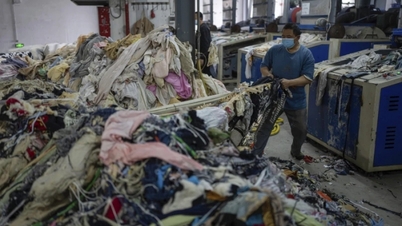









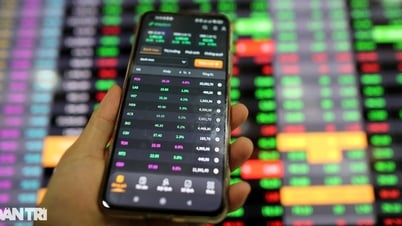
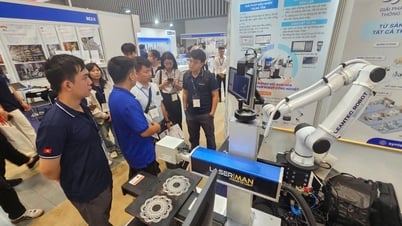











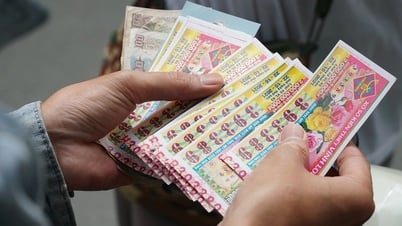








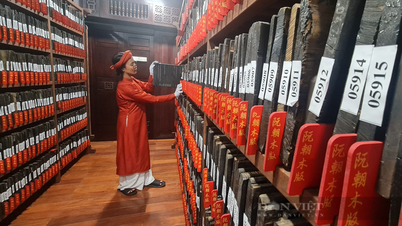

























![[Photo] General Secretary To Lam attends the launch of 3 digital platforms serving the implementation of Resolution No. 57-NQ/TW](https://vphoto.vietnam.vn/thumb/402x226/vietnam/resource/IMAGE/2025/7/2/d7fb7a42b2c74ffbb1da1124c24d41d3)





































Comment (0)